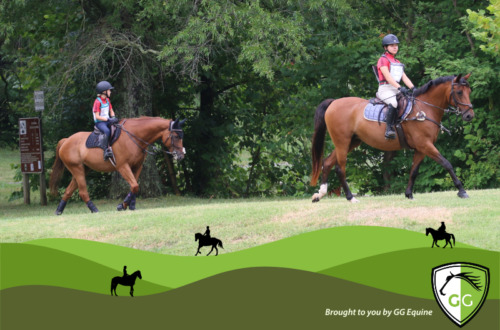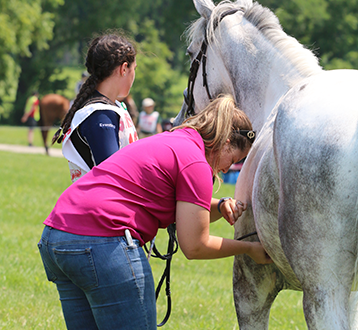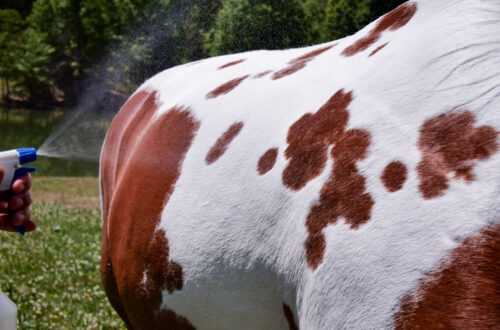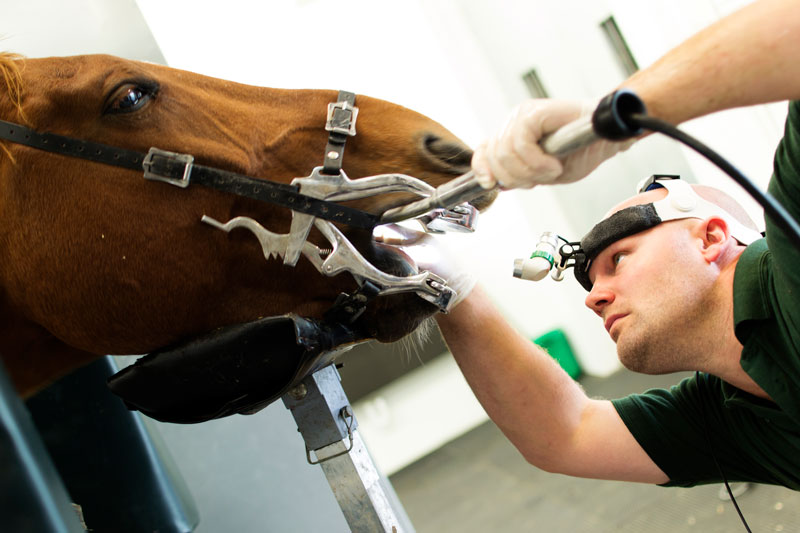
Can You Spot the Signs of Dental Pain in Your Horse?
By Jeff Hall, DVM, Senior Equine Technical Services Veterinarian, Zoetis
Horses and ponies are stoic animals, especially when it comes to dental pain. They often show us only minor signs of discomfort, which can quite commonly show up as behavioral problems.
For example, one horse owner told me she purchased a young horse who settled in well but had the strangest behavior while eating grain. After each bite, the filly stretched and twisted her head while chewing, spilling feed everywhere. The owner scheduled a dental exam with her veterinarian, and it revealed multiple tooth issues, which were causing the horse pain. A few days after an exam and treatment, the filly was eating her feed normally.
Many different factors cause physical and behavioral changes. In a 2020 survey, nearly three-quarters (73%) of horse owners indicated their horse had at least one behavior associated with dental pain.1 Additionally, a 2019 scientific study established a link between many common equine behavior problems and abscessed cheek teeth.2
Knowing the common signs of dental pain in horses can help you more easily recognize when something is off, signaling a call or visit with your veterinarian to mitigate potential problems as quickly as possible.
Be in the Know on Common Dental Concerns
It’s difficult to tell if your horse has tooth problems simply by looking at him. However, here are a few common dental problems your veterinarian can help diagnose.
- Infected teeth and/or gums
- Periodontal (gum) disease
- Abnormal or uneven bite planes
- Sharp enamel points forming on cheek teeth, causing lacerations of cheeks and tongue
- Lost and/or broken teeth
Eating /Drinking Behaviors Tied to Dental Pain
Watch for changes in your horse’s behaviors and observe new horses for common signs that may indicate it’s time to talk with your veterinarian about a dental exam. Behavioral signs of dental pain may include:
- Eating hay slowly
- Dropping hay from the mouth (commonly called quidding)
- Pausing while eating hay
- Food pocketing (occurs when feed packs between the cheek teeth)
- Adjusting hay in the mouth while eating
- Turning the head while eating hay
- Dropping grain from the mouth
- Dunking hay in water before eating
- Avoiding drinking cold water
Social Behaviors Linked to Dental Pain
Horses are naturally social animals—they thrive on interactions with you and their pasture or stablemates. When they are disinterested in others, a tooth problem could potentially be to blame. This could look like:
- Asocial behavior with people and/or other horses
- Aggressive behavior
- Head shyness
- General disinterest in their surroundings
Performance Issues Associated with Dental Pain
There are many reasons your horse’s performance or training progress could hit a roadblock. One reason might be a tooth abscess. Ask your veterinarian to perform a full oral exam to help uncover if dental pain might be causing your horse to:
- Evade the bit (which may look like “grabbing” the bit, being above the bit, or running through the bit)
- Respond differently to left and right rein contact when ridden or driven with a bit—rein contact is typically worse on the same side as the affected tooth
- Shake his head when ridden/driven with a bit
- Open his mouth when ridden/driven with a bit
- Resist bridling
Common Causes Behind Dental Pain
There are numerous potential problems that could be the root of your horse’s dental pain, including tooth abscesses, sharp points caused by uneven tooth wear, as well as a fractured or infected tooth. Your veterinarian can only diagnose and treat the source of pain through a comprehensive dental/oral exam.
Say “Ahhh…”
Did you know? Horses are commonly sedated for a full oral exam and treatment (learn more about what to expect during a dental exam here).
Your veterinarian may recommend using a sedative to help keep your horse and any assisting handlers safe during dental procedures. When your veterinarian recommends and uses a sedative, they are working to help protect your horse’s safety and provide pain control.
Chances are you and your family see the dentist at least once, if not twice per year. Your horse needs regular dental care for his overall well-being, too. If it’s been a while since your horse’s last dental exam, you’re not alone. A 2020 survey indicated that nearly 28% of horse owners shared it had been 12 months or longer since their horse had a dental checkup.2
Annual dental exams are an important part of a comprehensive spring tune-up for the horse(s) you know and love. Talk with your veterinarian today to schedule an appointment or discuss any concerns.
References
1 Zoetis Inc. Data on file. 2020 Zoetis Equine Dental Wellness Survey.
2 Pehkonen J, Karma L, Raekallio M. Behavioral Signs Associated With Equine Periapical Infection in Cheek Teeth. J Equine Vet Sci. 2019;77:144-50.
The American Association of Equine Practitioners. AAEP horse health: The importance of maintaining the health of the horse’s mouth. https://aaep.org/horsehealth/importance-maintaining-health-your-horses-mouth. Accessed January 20, 2023.
Zoetis Inc. Data on file. 2020 Equine Pain & Sedation Market Research Study.
Data on file, Animalytix Market Segmentation, December 2022.
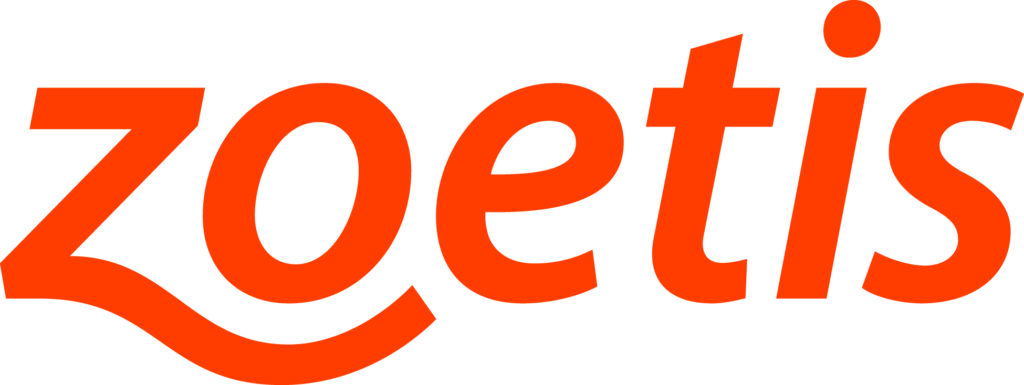
About Zoetis— Official USPC Equine Health and Wellness Partner
To learn more about how Zoetis is making lives better for horses and those who care for them, visit zoetisequine.com and Zoetis Equine on Facebook and Instagram.



